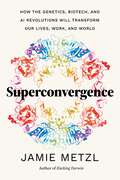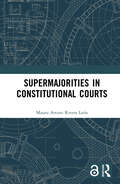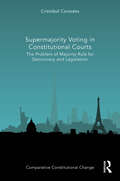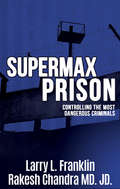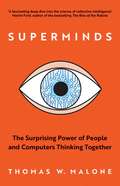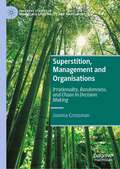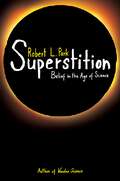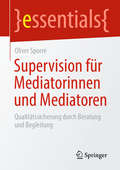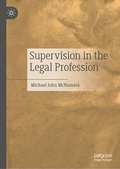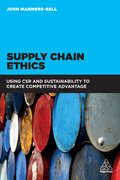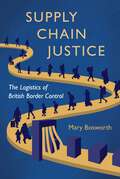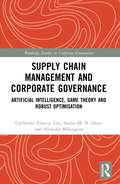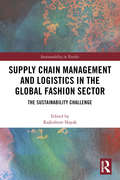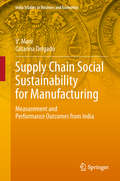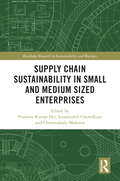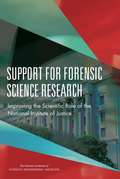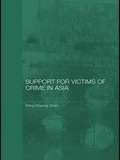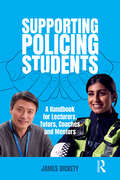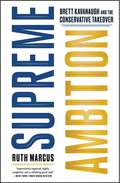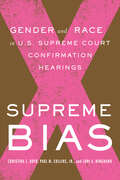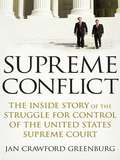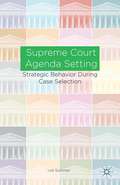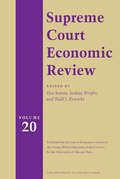- Table View
- List View
Superconvergence: How the Genetics, Biotech, and AI Revolutions Will Transform our Lives, Work, and World
by Jamie Metzl"Superconvergence is brilliant. I can't recommend it more strongly."―Sanjay Gupta MD, bestselling author, neurosurgeon, and Emmy-award winning chief medical correspondent (CNN) In Superconvergence, leading futurist and OneShared.World founder Jamie Metzl explores how artificial intelligence, genome sequencing, gene editing, and other revolutionary technologies are transforming our lives, world, and future. These accelerating and increasingly interconnected technologies have the potential to improve our health, feed billions of people, supercharge our economies, store essential information for millions of years, and save our planet, but they can also―if we are not careful―do immeasurable harm. The challenge we face is that while our ability to engineer the world around us is advancing exponentially, our processes for understanding the scope, scale, and implications of these changes, and for managing our godlike powers wisely, are only inching forward glacially. Luckily, in Jamie Metzl, we have a leading expert who integrates science, technology, history, politics, and international affairs to envision a future that most specialists, almost by definition, cannot see. In this bold and inspiring exploration of transformative human knowledge, Metzl gives us the definitive account of the technological precipice on which we stand and the map to where we go from here.
Supermajorities in Constitutional Courts
by Mauro Arturo Rivera LeónConstitutional adjudication is a subject of fascination for scholars. Judges may annul the will of a democratically elected Parliament in counter-majoritarian fashion. Although conceived as a remedy against majoritarianism, judges also decide cases by voting. Whether they do so through simple majorities or supermajorities is not trivial.The debate around supermajorities has awakened anew amidst theories of judicial limitation and new conceptions of judicial review. This book advances our knowledge of systems employing supermajorities in constitutional adjudication by performing a comparative analysis of ten jurisdictions and twelve supermajority models. It introduces a typology of the main models of institutional design, the reasons leading policymakers to establish them, and the impact supermajorities have on courts. It explores the question of whether supermajorities grant deference and foster consensus, or if they disable constitutional courts from exercising judicial review. By analyzing the history, practice, and effects of supermajority rules in courts, this book contributes to an ongoing conversation on the democratic implications of voting protocols in constitutional courts. It will be a valuable resource for policy-makers, scholars, and researchers working in the areas of comparative constitutional law and constitutional politics.The Open Access version of this book, available at http://www.taylorfrancis.com, has been made available under a Creative Commons Attribution (CC-BY) 4.0 license.
Supermajority Voting in Constitutional Courts: The Problem of Majority Rule for Democracy and Legislation (ISSN)
by Cristóbal CaviedesThis book challenges the wide use of majority rule in many constitutional courts for declaring statutes unconstitutional and argues that these courts should rather perform constitutional review by using supermajority rules. Considering that constitutional courts often tackle hard moral issues, it is questionable whether a bare majority of judges should suffice for settling them, especially considering these courts’ counter-majoritarian nature. Further, the wide use of majority rule for checking the constitutionality of legislation may increasingly risk their reputation. Such a concern is developing in the United States following a series of Supreme Court decisions. This book argues that majority rule is unjustified in constitutional review. This means that, in constitutional review, considering majority rule’s traits, there are no decisive reasons for using this voting rule over other voting rules. Additionally, the book argues that, when checking the constitutionality of legislation, constitutional courts should replace majority rule with supermajority rules. Thus, for declaring statutes unconstitutional, it is argued that more than 50% of the judges present plus one judge present should be needed. This book will be of interest to academics, researchers, and policy-makers working in the areas of Constitutional Law and Politics.
Supermax Prison: Controlling the Most Dangerous Criminals
by Rakesh Chandra Larry FranklinThe penetrating look at the violence that swept prisons in the 1980’s and 1990’s and the organizational structure mirroring the Mafia that erupted in them. The inmates had to make a choice between joining a gang that offered protection, friendships, financial rewards, access to drugs and other contraband or serving as a lone inmate in a dangerous, even lethal world. The worst in this violent world were sent to a supermax prison. Tamms in Illinois was one of those supermax prisons.This is the story of Tamms."A must-read for anyone interested in the US criminal justice system and its supermax prisons." -- Elizabeth Theresa Klaver, Professor of English at Southern Illinois University"If you work at, administer with, or have anything to say about dangerous or mentally ill inmates, then this book is for you." -- Father Leo J. Hayes, M. Div., M.A., Author of “Evil In Mirror Lake”
Superminds: How Hyperconnectivity is Changing the Way We Solve Problems
by Thomas W. MaloneIs Apple conscious? Could a cyber–human system sense a potential terrorist attack? Or make diagnosing a rare and little-known disease routine? Computers are not replacing us: they are enhancing us. Different intelligences are joining together to do things we thought were impossible. Whether it&’s devising innovations to tackle climate change, helping job seekers and employers find one another, or identifying the outbreak of a serious disease, groups of humans and machines are already working together to solve all sorts of problems. And they will do a lot more. The future will be like another world – a place where we&’ll think differently. In many ways, we are already there.
Superstition, Management and Organisations: Irrationality, Randomness, and Chaos in Decision Making (Palgrave Studies in Workplace Spirituality and Fulfillment)
by Joanna CrossmanThis book addresses how people and organisations sometimes respond to uncertainty in making decisions. Those decisions are rooted in beliefs and behaviours that are not always rational, especially in response to perceived randomness, chaos and unexpected circumstances. The author uses a transdisciplinary approach to the study of superstition in the context of business and management, taking care to acknowledge that what is regarded as superstition to one person may well be constructed as a spiritual belief by another. Respect and sensitivity in explicating individual and social constructions of spirituality is a core value in structuring the narrative of the text. The work also explores the interwoven relationships amongst superstition, religion, spirituality and empiricism and how cultural, political, economic and environmental factors are likely to influence organisations and those who are employed by them. Further, it examines the influence of beliefs related to topics such as feng shui, astrology, phrenology and the I Ching in recruitment. This comprehensive treatment of the role of superstition in business will advance the scholarly conversation on uncertainty in decision making. It points to the power of belief that defies empirical validation and how it can be used in a variety of contexts, such as the marketing of products and images to manipulate unwary consumers or inhibit the implementation of health advice in times of COVID-19.
Superstition: Belief in the Age of Science
by Robert L. ParkWhy the battle between superstition and science is far from overFrom uttering a prayer before boarding a plane, to exploring past lives through hypnosis, has superstition become pervasive in contemporary culture? Robert Park, the best-selling author of Voodoo Science, argues that it has. In Superstition, Park asks why people persist in superstitious convictions long after science has shown them to be ill-founded. He takes on supernatural beliefs from religion and the afterlife to New Age spiritualism and faith-based medical claims. He examines recent controversies and concludes that science is the only way we have of understanding the world.Park sides with the forces of reason in a world of continuing and, he fears, increasing superstition. Chapter by chapter, he explains how people too easily mistake pseudoscience for science. He discusses parapsychology, homeopathy, and acupuncture; he questions the existence of souls, the foundations of intelligent design, and the power of prayer; he asks for evidence of reincarnation and astral projections; and he challenges the idea of heaven. Throughout, he demonstrates how people's blind faith, and their confidence in suspect phenomena and remedies, are manipulated for political ends. Park shows that science prevails when people stop fooling themselves.Compelling and precise, Superstition takes no hostages in its quest to provoke. In shedding light on some very sensitive--and Park would say scientifically dubious--issues, the book is sure to spark discussion and controversy.
Supervision für Mediatorinnen und Mediatoren: Qualitätssicherung durch Beratung und Begleitung (essentials)
by Oliver SporréSupervision ist ein wichtiger Baustein zur Qualitätssicherung, sowohl in der Ausbildung als auch in der täglichen Arbeit der Mediatoren. Da für die Supervision keine feststehenden Regeln und Abläufe bestehen, gibt es in der Praxis unterschiedliche Erscheinungsformen. Im Mittelpunkt dieses essentials steht die mediationsanaloge Supervision, die Ähnlichkeiten mit den Phasen einer Mediation aufweist und deshalb für Mediatoren gut geeignet ist. Unter Anleitung eines Supervisors entwickeln Mediatoren an einem dargestellten Fall in einer Gruppe Lösungsoptionen für berufliche Fragestellungen und Herausforderungen, die anschließend nach eigener Auswahl und Entscheidung in die Praxis umgesetzt werden können.
Supervision in the Legal Profession
by Michael John McNamaraThis book is about supervision in the legal profession with a focus on the experience of novice lawyers. It is the first of its kind. Until now there have been a range of books dedicated to professional supervision in many disciplines, but not law. Supervision is an important link between formal university-based legal education and independent practice and is relevant to a range of contemporary legal practice issues including changes driven by technology, workplace culture, regulating law firm management, and well-being. This book aims to be scholarly and practical. It provides an overview of how supervision is positioned in the legal regulatory framework; it describes how supervision is conceived in the legal profession and practice management literature; and draws lessons from clinical legal education and other professional disciplines. By reporting on survey data, this book also provides insights into practitioners’ attitudes and perceptions about supervision in legal practice.
Supply Chain Ethics: Using CSR and Sustainability to Create Competitive Advantage
by John Manners-BellIt is increasingly clear that traditional supply chains which focus on sourcing products from the lowest possible cost suppliers are failing to exploit their full potential.Supply Chain Ethics, through case studies, surveys and unique research, identifies and outlines best practice being employed by global manufacturers, retailers and logistics companies. It examines the so-called 'triple advantage' that accrues to businesses when strategies that combine bottom line profits, sustainable environmental practices and positive societal impact are employed. Narrow supply chain strategies which focus on only one of these three factors will inevitably fail.Supply Chain Ethics covers the following issues which affect senior supply chain, operations and manufacturing managers: 'triple advantage' best practice and how it can create value for global businesses; product design; sourcing and warehousing; transportation and recycling; environmental practices of logistics companies and suppliers; supply chain technologies. There is also an invaluable Ethical Supply Chains survey of top global companies.
Supply Chain Justice: The Logistics of British Border Control
by Mary BosworthHow the UK&’s immigration detention and deportation system turns people into monetized, measurable units on a supply chain In the UK&’s fully outsourced &“immigration detainee escorting system,&” private sector security employees detain, circulate and deport foreign national citizens. Run and organized like a supply chain, this system dehumanises those who are detained and deported, treating them as if they were packages to be moved from place to place and relying on poorly paid, minimally trained staff to do so. In Supply Chain Justice, Mary Bosworth offers the first empirically grounded, scholarly analysis of the British detention and deportation system. Drawing on four years of extensive ethnographic research, Bosworth examines what keeps the system in place and whether it might be effectively challenged.Told by a senior manager that &“this is a logistics business,&” Bosworth documents how the public and private sectors have built a supply chain in which people&’s humanity is transformed both symbolically and tangibly through administrative processes and bureaucracy into monetized, measurable units. Like all logistics, the system has failure built into it. The contract does not seek to eradicate risk but rather to manage it, determining responsibility and apportioning a financial value to such &“failures&” as delay, escape, aborted flight or death in custody. Front-line workers and managers depoliticise and normalise their efforts by casting their duties in familiar bureaucratic terms, with targets, &“service level agreements&” and &“key performance indicators.&” Focusing on first-hand accounts from workers and lengthy observation and document analysis, Bosworth explores the impact of border logistics in order to ask what it would take to build inclusive infrastructures rather than those designed to exclude.
Supply Chain Management and Corporate Governance: Artificial Intelligence, Game Theory and Robust Optimisation (Routledge Studies in Corporate Governance)
by Sardar M. Islam Catherine Xiaocui Lou Nicholas BillingtonSupply Chain Management and Corporate Governance: Artificial Intelligence, Game Theory and Robust Optimisation is the first innovative, comprehensive analysis and analytical robust optimisation modelling of the relationships between corporate governance principles and supply chain management for risk management and decision-making under uncertainty in supply chain operations. To avoid corporate failures and crises caused by agency problems and other external factors, effective corporate governance mechanisms are essential for efficient supply chain management. This book develops a new collaborative robust supply chain management and corporate governance (RSCMCG) model and framework that combines good corporate governance practices for risk management strategies and decision-making under uncertainty. This model is developed as a principal–agent game theory model, and it is digitalised and computed by Excel algorithms and spreadsheets as an artificial intelligence and machine-learning algorithm. The implementation of the RSCMCG model provides optimal supply chain solutions, corporate governance principles and risk management strategies for supporting the company to achieve long-term benefits in firm value and maximising shareholders’ interests and corporate performance while maintaining robustness in an uncertain environment. This book shows the latest state of knowledge on the topic and will be of interest to researchers, academics, practitioners, policymakers and advanced students in the areas of corporate governance, supply chain management, finance, strategy and risk management.
Supply Chain Management and Logistics in the Global Fashion Sector: The Sustainability Challenge (Textile Institute Series: Responsibility and Sustainability)
by Rajkishore NayakThe ways in which we design, make, transport and then discard clothes has a huge social and environmental impact. This book covers responsible business practices and sustainability in the fashion industry from the raw fibre stage, through production, to the point of customer consumption. The concepts of responsibility and sustainability are fast becoming essential factors in business decisions and Responsible Supply Chain Management leads the reader through the multiple stages in the supply chain that can impact on business strategy. A perfect resource for students studying fashion and for those working in the sector who wish to identify the latest thinking as they plan sustainability strategies, the book is divided into four clear sections. The first introductory part of the book examines sustainability in the supply chain by identifying the main three pillars of sustainability (social, economic and environmental) and considers which fashion brands are innovating in this area. Part two looks at fashion logistics and supply chain operations by assessing fibre, yarn and fabric considerations, logistical issues for both garment production, and service delivery, stock control, transportation, barriers and risks. The third part develops the logistics theme further by identifying recent trends and case studies that highlight agility and lean management structures, and the application of transparency enhancing RFID. This section further applies modelling and simulation techniques from the automotive and pharmaceutical industries to the fashion sector. The final part considers how sustainability can be embedded into the multi-tiered fashion supply chain and its selling environment.
Supply Chain Social Sustainability for Manufacturing: Measurement and Performance Outcomes from India (India Studies in Business and Economics)
by V. Mani Catarina DelgadoThis book highlights a number of social sustainability issues at different stages of the supply chain, and demonstrates how these issues can be addressed by adopting social sustainability practices in the manufacturing supply chain. In the wake of emerging social issues in developing countries, research on social sustainability has gained importance for academics and practitioners alike. The three distinguishable social sustainability dimensions in manufacturing that emerge as a result of this research provide insights for supply chain managers and practitioners who might otherwise be unaware of what constitutes social sustainability. A better understanding allows supply chain managers to address these issues more appropriately to increase their supply chain competitiveness in the market. The book presents a social sustainability scale that can be used by practitioners to measure supply chain social sustainability to benchmark their supply chains globally. The research also helps academicians to gain an understanding of the social issues related to the manufacturing supply chain, while the social measures developed serve as reference material for policy-makers and sustainability experts in emerging economies.
Supply Chain Sustainability in Small and Medium Sized Enterprises (Routledge Research in Sustainability and Business)
by Prasanta Kumar Dey, Soumyadeb Chowdhury and Chrisovaladis MalesiosThis book examines the sustainability of supply chains in small and medium sized enterprises (SMEs), in developed and emerging economies. Drawing on contributions from experts in the field and examining case studies from a range of countries, including Thailand, Bangladesh, France, Spain, Austria and Greece, this book provides researchers and industry practitioners with guidance on how to make SMEs more sustainable through appropriate trade-offs between economic, environmental and social aspects. Over the course of the book, the authors examine the current state of sustainable supply chain practices, highlight the key issues and challenges, and identify critical success factors across different industries and geographical locations. They also explore how supply chain carbon footprints and effectiveness are measured, and navigate the delicate balance between reducing the carbon footprint whilst still ensuring enhanced productivity. Finally, the book reflects on how the circular economy model might facilitate higher sustainability of SMEs. Supply Chain Sustainability in Small and Medium Sized Enterprises will be of great interest to scholars and practitioners of supply chain management and sustainable business.
Support for Forensic Science Research: Improving the Scientific Role of the National Institute of Justice
by Committee on Strengthening Forensic Science at the National Institute of JusticeReliable and valid forensic science analytic techniques are critical to a credible, fair, and evidence-based criminal justice system. There is widespread agreement that the scientific foundation of some currently available forensic science methods needs strengthening and that additional, more efficient techniques are urgently needed. These needs can only be met through sustained research programs explicitly designed to ensure and improve the reliability and validity of current methods and to foster the development and use of new and better techniques. This task is challenging due to the broad nature of the field. Concerns have been raised repeatedly about the ability of the criminal justice system to collect and analyze evidence efficiently and to be fair in its verdicts. Although significant progress has been made in some forensic science disciplines, the forensic science community still faces many challenges. Federal leadership, particularly in regard to research and the scientific validation of forensic science methods, is needed to help meet the pressing issues facing state and local jurisdictions. This report reviews the progress made by the National Institute of Justice (NIJ) to advance forensic science research since the 2009 report, Strengthening Forensic Science in the United States: A Path Forward and the 2010 report, Strengthening the National Institute of Justice. Support for Forensic Science Research examines the ways in which NIJ develops its forensic science research priorities and communicates those priorities as well as its findings to the scientific and forensic practitioner communities in order to determine the impact of NIJ forensic science research programs and how that impact can be enhanced.
Support for Victims of Crime in Asia (Routledge Law in Asia #Vol. 3)
by Wing-Cheong ChanGiving victims of crime a greater role in the criminal justice system is a relatively recent development, a trend likely to continue and increase in the foreseeable future. In many jurisdictions it has led to compensation schemes funded by the state, support for victims of crime to help them recover from their ordeal, and involvement of victims in decisions as to how offenders should be dealt with. This book examines developments in support for victims of crime in Asia. It shows how, contrary to the widely-held belief that Asian jurisdictions shy away from a rights based approach, there has been considerable progress in support for victims of crime in Asia, especially in Thailand and Korea, where rights for victims of crime are entrenched in constitutional provisions, and in Taiwan and Japan. Support for Victims of Crime in Asia discusses international developments, the degree to which support for victims of crime is an import into Asia from the west, and developments in a range of countries, including Thailand, Korea, Taiwan and Japan, India, China, Singapore, Malaysia, Indonesia, and the Philippines.
Supporting Policing Students: A Handbook for Lecturers, Tutors, Coaches and Mentors
by James DicketyThis is an invaluable guide for those involved in supporting policing students, including lecturers, tutors, trainers, mentors and coaches. It integrates quality research and practice to help anyone in these roles provide optimal support and guidance to their policing students. Shaping the next generation of policing officers and staff comes with a unique set of challenges, so chapters cover a myriad of useful subjects related to coaching models and theories and how to apply these in a policing context. Additionally, you will find insightful teaching tips, including effective feedback strategies and guidance on addressing challenging topics like domestic abuse and courtroom appearances. Accessibly written, this book can be explored from start to finish or used as a reference guide, and includes reflective exercises and real-life policing examples to help you apply theory to practice, creating an enriching learning experience for both you and your students.
Suppressing the Financing of Terrorism
by International Monetary FundA report from the International Monetary Fund.
Supreme Ambition: Brett Kavanaugh and the Conservative Takeover
by Ruth MarcusThe Washington Post journalist and legal expert Ruth Marcus goes behind the scenes to document the inside story of the Brett Kavanaugh confirmation battle and the Republican plot to take over the Supreme Court—thirty years in the making—in this &“impressively reported, highly insightful, and rollicking good read&” (The New York Times Book Review).In the summer of 2018 the Kavanaugh drama unfolded so fast it seemed to come out of nowhere. With the power of the #MeToo movement behind her, a terrified but composed Christine Blasey Ford walked into a Senate hearing room to accuse Kavanaugh of sexual assault. This unleashed unprecedented fury from a Supreme Court nominee who accused Democrats of a &“calculated and orchestrated political hit.&” But behind this showdown was a much bigger one. The Washington Post journalist and legal expert Ruth Marcus documents the thirty-year mission by conservatives to win a majority on the Supreme Court and the lifelong ambition of Brett Kavanaugh to secure his place in that victory. The reporting in Supreme Ambition is full of revealing and weighty headlines, as Marcus answers the most pressing questions surrounding this historical moment: How did Kavanaugh get the nomination? Was Blasey Ford&’s testimony credible? What does his confirmation mean for the future of the court? Were the Democrats outgunned from the start? On the way, she uncovers secret White House meetings, intense lobbying efforts, private confrontations on Capitol Hill, and lives forever upended on both coasts. This &“extraordinarily detailed&” (The Washington Post) page-turner traces how Brett Kavanaugh deftly maneuvered to become the nominee and how he quashed resistance from Republicans and from a president reluctant to reward a George W. Bush loyalist. It shows a Republican party that had concluded Kavanaugh was too big to fail, with senators and the FBI ignoring potentially devastating evidence against him. And it paints a picture of Democratic leaders unwilling to engage in the no-holds-barred partisan warfare that might have defeated the nominee. In the tradition of The Brethren and The Power Broker, Supreme Ambition is the definitive account of a pivotal moment in modern history, one that will shape the judicial system of America for generations to come.
Supreme Bias: Gender and Race in U.S. Supreme Court Confirmation Hearings
by Paul M. Collins Jr Lori Ringhand Christina BoydIn Supreme Bias, Christina L. Boyd, Paul M. Collins, Jr., and Lori A. Ringhand present for the first time a comprehensive analysis of the dynamics of race and gender at the Supreme Court confirmation hearings held before the Senate Judiciary Committee. Drawing on their deep knowledge of the confirmation hearings, as well as rich new qualitative and quantitative evidence, the authors highlight how the women and people of color who have sat before the Committee have faced a significantly different confirmation process than their white male colleagues. Despite being among the most qualified and well-credentialed lawyers of their respective generations, female nominees and nominees of color face more skepticism of their professional competence, are subjected to stereotype-based questioning, are more frequently interrupted, and are described in less-positive terms by senators. In addition to revealing the disturbing extent to which race and gender bias exist even at the highest echelon of U.S. legal power, this book also provides concrete suggestions for how that bias can be reduced in the future.
Supreme Conflict: The Inside Story of the Struggle for Control of the United States Supreme Court
by Jan Crawford GreenburgDrawing on unprecedented access to the Supreme Court justices themselves and their inner circles, acclaimed ABC News legal correspondent Jan Crawford Greenburg offers an explosive newsbreaking account of one of the most momentous political watersheds in American history. From the series of Republican nominations that proved deeply frustrating to conservatives to the decades of bruising battles that led to the rise of Justices Roberts and Alito, this is the authoritative story of the conservative effort to shift the direction of the high court--a revelatory look at one of the central fronts of America's culture wars by one of the most widely respected experts on the subject. .
Supreme Court Agenda Setting
by Udi SommerMuch research is devoted to the decision-making power and precedent set by the Supreme Court. Less attention, however, is given to the strategic behavior during case selection. This book argues that case selection is done strategically, and by means of various criteria - influencing its constitutional position and importance.
Supreme Court Confirmation Hearings and Constitutional Change
by Paul M. Collins Lori A. RinghandBefore Supreme Court nominees are allowed to take their place on the High Court, they must face a moment of democratic reckoning by appearing before the Senate Judiciary Committee. Despite the potential this holds for public input into the direction of legal change, the hearings are routinely derided as nothing but empty rituals and political grandstanding. In this book, Paul M. Collins and Lori A. Ringhand present a contrarian view that uses both empirical data and stories culled from more than seventy years of transcripts to demonstrate that the hearings are a democratic forum for the discussion and ratification of constitutional change. As such, they are one of the ways in which 'We the People' take ownership of the Constitution by examining the core constitutional values of those permitted to interpret it on our behalf.
Supreme Court Economic Review, Volume 20 (Supreme Court Economic Review #20)
by The University of Chicago PressThe Supreme Court Economic Review is an interdisciplinary journal that seeks to provide a forum for scholarship in law and economics, public choice, and constitutional political economy. Its approach is broad ranging, and contributions employ explicit or implicit economic reasoning for the analysis of legal issues, with special attention to Supreme Court decisions, judicial process, and institutional design.
